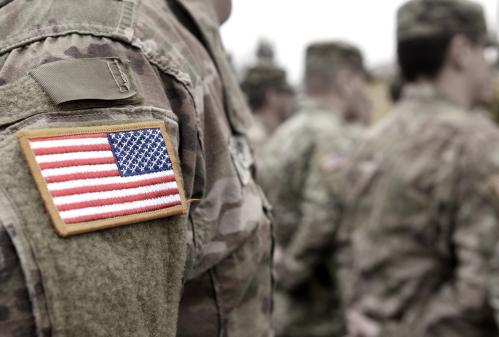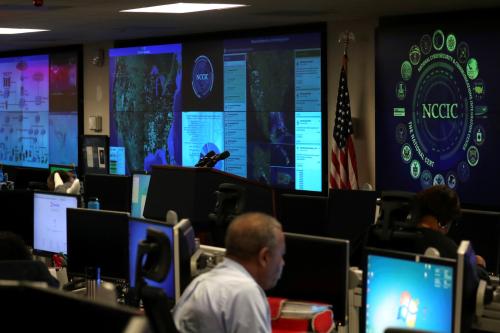When the White House nominated Marine Corps Gen. Peter Pace last week to be chairman of the Joint Chiefs of Staff, many observers said they hoped he would be able to stand up to Defense Secretary Donald Rumsfeld. They were implying, not so subtly, that he and most of the nation’s other top military leaders had not done so in the past. As Congress prepares for Pace’s confirmation hearings, it is important to explore this issue.
Civil-military relations are always complicated in a constitutional democracy—and always critical to the nation’s security in times of war. The questions about Pace derive, of course, from his role as vice chairman of the Joint Chiefs during the Iraq events. The post-invasion phase of the operation (“Phase IV”) there has been the most poorly planned U.S. military mission since Somalia in 1993—if not Lebanon in 1983—with greater consequences for national security than any use of force since Vietnam.
Because the United States was unprepared for the job of reestablishing order after Saddam Hussein’s fall, chaos ensued, Iraqi goodwill toward the United States was largely squandered, and the insurgency established a momentum it might not otherwise have been able to gain. This happened despite ample warnings beforehand from members of Congress, retired military officers, State Department experts and numerous independent scholars.
The standard explanation for this debacle is that Rumsfeld and other Bush administration officials insisted on fighting the war with too few troops and with a Pollyannaish view of what would happen in Iraq once Hussein was overthrown. This explanation is largely right. Taken to an extreme, however, it is dangerously wrong.
It blames civilian leaders for a war plan in which top military planners, from Central Command leader Tommy Franks to most members of the Joint Chiefs, were fully complicit. By caving to Rumsfeld, high-ranking officers of the U.S. armed forces failed to fulfill their responsibilities to their own brave fighting men and women—and to Congress, to which they are also entrusted by law with providing advice.
The Constitution makes the president commander in chief and requires military leaders to follow his orders. It does not, however, require them to remain mute when poor plans are being prepared. Nor does it require them to remain in uniform when they are asked to undertake actions they know to be unwise or ill planned.
U.S. civilian leaders and military officers must not pretend that their jobs can be neatly separated into two broad and distinct bins, with high strategy as the primary province of civilians and military operations as the area in which the uniformed services have exclusive expertise. The fact is that broad strategy and military operations are inherently intertwined.
The question of how wars should be conducted affects decisions on whether to fight them. Thus, civilians must think about the technical subjects in which the armed forces specialize. And by the same token, the political goals in the nation’s conflicts affect the tactics and operational plans available to the uniformed services—meaning that military commanders must also understand strategy.
Lest there be any doubt about the lack of a proper plan for post-Hussein Iraq, one need only consider the 3rd Infantry Division’s after-action report, which reads: “Higher headquarters did not provide the [division] with a plan for Phase IV. As a result, Third Infantry Division transitioned into Phase IV in the absence of guidance.”
A broader Defense Department report on the war similarly observed that “late formation of Department of Defense [Phase IV] organizations limited time available for the development of detailed plans and pre-deployment coordination.”
Among top military officers, it appears that only Gen. Eric Shinseki, when he was Army chief of staff, effectively challenged the Rumsfeld-Franks war plan for Iraq, focusing specifically on whether the force was large enough for the post-invasion mission.
By contrast, Pace clearly leaned toward the Rumsfeld-Franks view, as is clear from his April 6, 2003, appearance on “Meet the Press” and other times. Pace also acknowledged that he had seen the war plan on several occasions and supported it—this at a time when no institution in the U.S. government other than the uniformed military was in a strong position to play the role of checking and balancing Rumsfeld.
Congress needs to air the issue before approving Pace’s nomination. Whether he supported the war plan for reasons of political convenience, excessive deference to the country’s civilian leadership or just because he made a mistake in judgment, he needs to be held accountable—and pushed to do better next time.
The Brookings Institution is committed to quality, independence, and impact.
We are supported by a diverse array of funders. In line with our values and policies, each Brookings publication represents the sole views of its author(s).



Commentary
Op-edSpeaking Truth to Rumsfeld
May 3, 2005